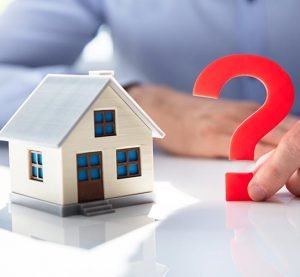What is a Sale with a Leaseback?
Will Covid Affect Home Values in 2022
The Value of My Home
Covid hit the residential real estate market hard in the spring of 2020. The fear of the unknown and the government’s lockdown caused an immediate decrease in the number of sellers and buyers. During that time, there were very few homes selling the traditional way. Sellers who said, “I need to sell my house quickly” or “sell my house fast,” had little hope of finding a buyer. At that time, the only home buyers were companies that buy houses for cash. But this did not last long.
Within 6 months the residential housing market recovered but with fewer homes on the market. This tightening of inventory and the need for housing in a growing population was the driving factor in propelling the price of homes higher. This quick recovery surprised many of the experts and economists.
Looking forward, we enter the new year on solid ground but we are facing several issues that might derail the housing boom.
Covid Has Changed How We Live and Work
There is no question that Covid has affected every part of our daily lives. Society’s initial response was shock and fear, which was highlighted by the hoarding of toilet paper. This was followed by short-term lifestyle changes and adjustments, including the creation of new terms like social distancing and essential employees/businesses. Society is now in the final phase of acceptance and the establishment of a new normal.
Although not all of the permanent changes brought on by the Covid can be identified at this time, it is clear that the pandemic has permanently changed how we live and work. In this article, we will discuss these changes and the current economic issues to see if we can answer the question “Will Covid Affect Home values in 2022?”

How Society has Coped and Adjusted
Remote Working

Remote working or working from home is considered one of the largest and most fundamental changes that became a necessity due to the Covid pandemic. Thousands of workers who once commuted to the office were now forced to work from home, and the experts were even surprised that remote working increased productivity, employees were happier and more satisfied with their jobs.
The shift has been so profound that in a State of Remote Work Survey of companies, many of them have created permanent remote worker policies. One thing is clear, remote working is here to stay and the US housing market has been adjusting to this new reality. The effect of this massive shift to remote working is still working its way through the housing market and it may be a decade or more before the changes are fully digested and quantified.
Now that people are working remotely, we expect a gradual but consistent migration of workers from the large urban areas to the more affordable suburbs. But as has been seen over the last year, we also expect an influx of Millenials into the more vibrant and lively urban centers.
Housing Preferences
Not surprisingly, our housing preferences have been altered by the shift to remote working. When the average person was commuting to work, the amount of waking hours spent in their home was typically less than the hours worked daily. In other words, most of us spent more time commuting and being at work than actually living in our home.
With remote working, the average person is spending 12 or more waking hours in their home, and the amenities and workspace of the home have become much more important. For a remote worker and their family, the next house they will buy will need to meet their post-Covid lifestyle. This includes homes that have the following features:

Home Office
When you are working from home, having a dedicated home office is no longer a luxury but becomes a necessity. This is your private workspace that has your computer, printer, files, and other work necessities that make remote working possible. Although this space is part of your home, in many ways, it is treated differently. It becomes the private domain of the person who works from home. This is quickly becoming the number one requirement of home buyers.

Distinct Spaces
Covid has brought us lockdowns, homeschooling, and remote working. All of these have families spending more time together than ever and have created a new appreciation for separate living areas, play areas, and private spaces where a family can be together but still has some private space when needed. The open space concept of previous years is being replaced with a mix of open and defined spaces that meet the needs of the family with a person working from home. New home builders have redesigned their homes to meet the needs of post-Covid home buyers with distinct spaces for the remote worker and open spaces where the family can do things together.

Amenities & Outdoor Space
One thing everyone has learned while being locked down, having a home with a lot of amenities or large outdoor space is invaluable. Future homebuyers are looking for homes that offer features and outdoor spaces that allow them to be entertained without having to leave their home.
Over the long term this may affect home values, especially if we endure more lockdowns and a resurgence of Covid or another pandemic.

Multigenerational Housing
Another change brought on by Covid is the desire to have family near or living with you. With so many children out of school or being homeschooled, having a grandparent around to help provide childcare became necessary for many working families. Likewise, many of our elderly loved ones needed their adult children to help with their medical care or to keep them out of long-term medical care facilities. This trend towards multigenerational housing is expected to continue.
Fear Factor
One of the major effects of Covid on the US housing market was the fear factor. Although the fear factor affected the entire United States and still does to a lesser extent, the highly urbanized areas experienced the greatest number of Covid cases and deaths. They also endure the most severe lockdowns and disruptions. For a city like New York that averaged over 1.5 million subway passengers a day before Covid, having a disease as easily transmitted and potentially deadly as Covid was devastating. The same problems were felt in other highly urbanized cities like Los Angeles, Chicago, and Boston.
With the development of patient treatment protocols and a vaccine, these fears have lessened. Subject to a new deadlier variant of Covid arising, we expect the housing market to shake off the last of the lingering effects of Covid, including in the urban areas, and not be a material factor in 2022. Unfortunately, unless the urban centers get their rising theft, violent crime, and other quality of life issues under control, the fear factor of these issues will negatively affect their housing markets.

What Might Affect the Value of Your Home
Short Term Effect on Home Values
Except for the quality of life issues facing large urban cities, like New York City, housing prices in 2022 are expected to remain steady or slightly increase. Since housing prices are largely driven by interest rates and a robust economy, any major shift in either could negatively affect housing prices. Currently, in the United States, there is an expectation that there will be a gradual increase in interest rates. Providing these adjustments are incremental and moderate we do not expect these increases to have a major effect on home prices in 2022.

If you are living in the high growth low tax states like Texas and Florida, you can expect the demand for your home to remain high. However, over the next 12 months, the sales pace is expected to slow as rising mortgage rates and higher home prices create affordability issues. This will be especially true for many first-time buyers who will be priced out of the market.
On the other hand, if you are in New York City, or another city with high crime, high tax, and unending mandates, you can expect housing prices to be under pressure. Depending on how these cities deal with their looming problems, the cities could be in for a rough ride in the short term.
Long Term Effect on House Values
Due to the unprecedented nature of the pandemic and the emergence of different variants, there is no safe prediction for the long-term effect of Covid on the value of your home. However, there are a few historic indicators that will give us some insight into what we can expect. Let’s look at each indicator and see what they can tell us.

Consumer Confidence
The consumer confidence index measures how people are feeling about the economy and their personal finances. As expected, the confidence of consumers was greatly shaken by Covid but with the arrival of a vaccine and businesses reopening, consumer confidence has risen and is currently at favorable levels. This is a good indicator that, barring any unforeseen issues, the market is doing well and the consumer is not under duress. Providing this remains near its current level, you can anticipate that house prices will hold steady or increase over the next 12 months.

Unemployment Rate
The unemployment and labor force participation rate is another great indicator of the condition and direction of the economy. As with consumer confidence, the indicators were badly shaken during the peak of the pandemic, but over the last 12 months, the unemployment rate is dropping and the labor force participation rate is rising. Both are good indicators for the housing market and the value of your home.

Foreclosure and Delinquency Rates
The foreclosure rate and mortgage delinquency rates are good at indicating the direction of the housing market and the economic strength of the country. As of the writing of this article, this indicator is sending mixed signals. On one hand, the delinquency rate is rising but there are many signs that this is a temporary adjustment due to the long-term effects of Covid. As long as the foreclosure rates do not spike, the additional inventory created by the foreclosures will not have a major impact on the market and the value of your home.

Mortgage Interest Rates
The rise and fall of mortgage interest rates have a direct effect on home affordability and the direction of the housing market. We are currently in a low-interest-rate environment and have been for a prolonged period of time, which is good for the housing market. This trend is expected to change over the next 12 months with many experts predicting 4 rate increases in 2022. This is one indicator you will want to to watch as rising rates will have an immediate effect on housing affordability (higher rates make homes less affordable) and the housing market will adjust accordingly.

Days on the Market and Inventory
The average number of days it takes to sell a house and the number of months of inventory for your particular market are some of the best indicators for the value of your home. This data is for homes being sold in your neighborhood (versus the state or country) and can indicate whether home values in your area are expected to rise or fall. These reports are published monthly and provide current as well as historic data. For most markets in the United States the market indicators are excellent. This is expected to continue for the next 12 months due to strong demand and limited inventory.
Current Predictions
Based upon the current market indicators and the continuing economic recovery, housing demand is expected to remain strong with housing prices leveling off. Although the massive price appreciation of previous years appears to be coming to an end, the market should be accommodating to homeowners who are looking to sell their homes. The strongest markets and the homes that will have the greatest appreciation will be the low tax high growth areas of the country, mostly in the south. Again, the one possible exception to this forecast is housing in the highly populated urban areas that are experiencing an extreme spike in crime and quality of life issues.
Summary
If you have gotten to this point in the article, you probably realized that the value of your home is greatly affected by its location. Every city, town, and community has been affected by Covid-19, but some much more than others. Therefore, you are advised to follow the national data so you can identify trends that might affect the value of your home, but use local market data to ascertain the actual value of your home and local market conditions. A local real estate agent can be a great source for this information.
Brought to You By OutFactors
We Make it Easy to Sell Your House Fast for the Highest Cash Price
If you are short on time, money, or just do not want to deal with the hassle of selling your home, there is a faster and easier way—sell to a cash home buyer like OutFactors. You can sell your Dallas Fort Worth home the quick, easy, and stress-free way. OutFactors is a home cash buyer that makes the process of selling your home very quick and simple, and we usually close in 10 days or less.
To get a great cash offer on your home just enter your address and answer a few simple questions about your house. The entire process only takes about 2 minutes and personal information is NOT required. Yes, that is correct. No registration, no telephone number, no email address – not even your name. So get your cash offer now!
You will find that selling to companies that buy houses for cash, like OutFactors, has many benefits like being able to choose the closing date, or with our sell and stay leaseback program, when you will move out. As a seller, you have nothing to lose. If you get started now, 10 days later you can be sitting at a table signing the closing documents and collecting the cash for your house.
We hope this article was informative and helpful. If you have any questions or would like additional information, we invite you to contact us at OutFactors.com or watch some of our 2-minute explainer videos that provide information about our cash home buying programs.
OutFactors
539 West Commerce Street
Suite 1205
Dallas, Texas 75208
Contact@OutFactors.com
www.OutFactors.com
(800) 420-7030
Covid Affect Home Values 2022 | Sell My Home | OutFactors — Dallas Fort Worth, Texas




